Key takeaways
- Grassroots engagement and local partnerships are essential for the success of Republican campaigns, fostering personal connections with voters.
- Collaborating with local GOP groups involves genuine interest, volunteering, and transparent communication to build trust and credibility.
- Creative strategy development benefits from diverse perspectives, with adaptability and real-time feedback enhancing campaign effectiveness.
- Clear communication and celebrating small wins are crucial for managing joint campaign activities and maintaining team morale.
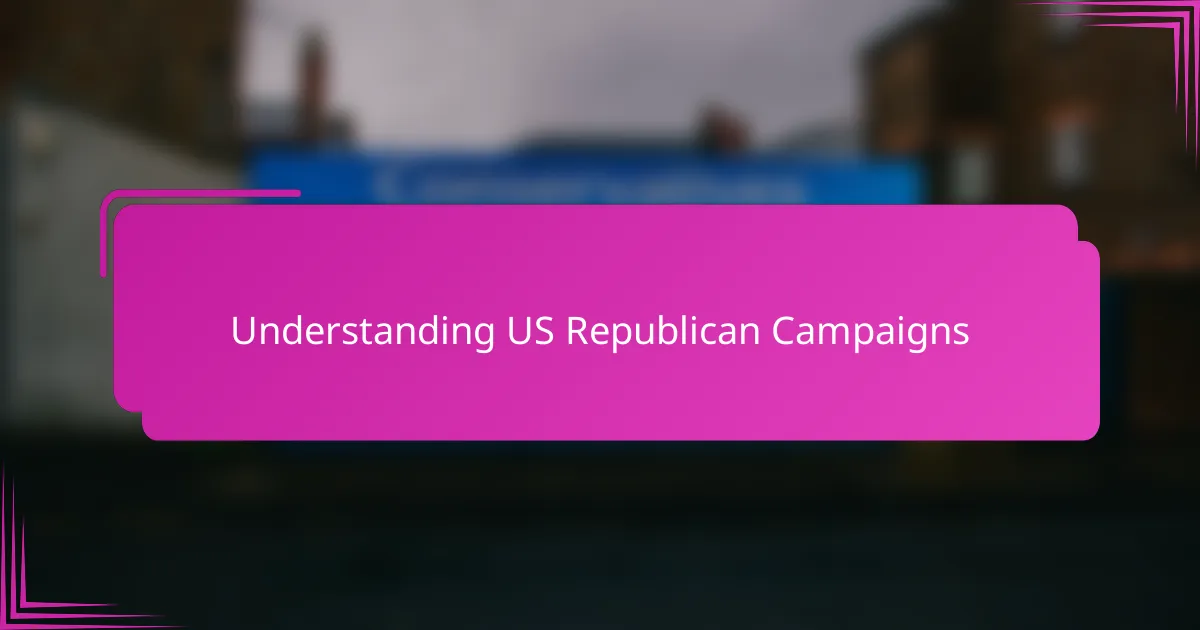
Understanding US Republican Campaigns
Understanding US Republican campaigns means recognizing their deep roots in local communities. From my experience, these campaigns thrive on grassroots engagement, where every conversation, rally, and flyer matters. Have you ever noticed how much energy volunteers bring to door-to-door canvassing? It’s electric—and it’s where real connections happen.
What strikes me about GOP campaigns is their strategic blend of tradition and innovation. They lean on tried-and-true messaging about economic freedom and strong national defense, yet they’re quick to adapt with digital outreach and social media. I’ve seen firsthand how a well-timed tweet can mobilize supporters faster than a phone call ever could.
At their core, Republican campaigns are about values that resonate personally with voters. It’s not just political jargon; it’s about protecting the future for families and communities. When I hear candidates speak about these commitments, I’m reminded how much passion fuels this movement—and why partnering at the local level is so crucial.
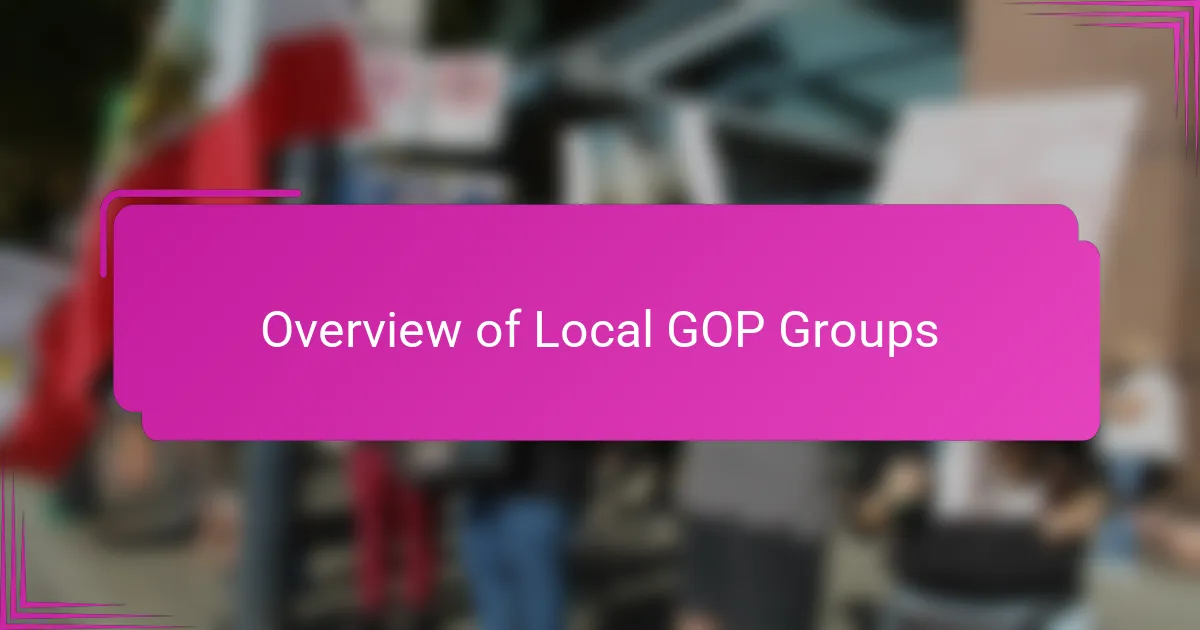
Overview of Local GOP Groups
Local GOP groups serve as the heartbeat of the Republican movement in communities across the country. From my experience working alongside these teams, their dedication goes beyond politics—it’s personal. Have you ever stepped into a room full of volunteers who genuinely believe in what they’re fighting for? That sense of purpose is palpable and infectious.
What I find fascinating about local GOP groups is their structure. Often composed of neighborhood leaders, activists, and longtime party loyalists, they operate like well-oiled machines. Yet, despite their organization, there’s an unmistakable warmth and accessibility. It’s this balance that makes collaboration feel natural and productive.
These groups also understand the nuances of their communities better than anyone. I’ve been amazed at how locally tailored their messaging can be, shifting tone and focus based on the audience without losing core principles. That level of insight is invaluable—it’s why strong partnerships at this level can lead to meaningful impact.
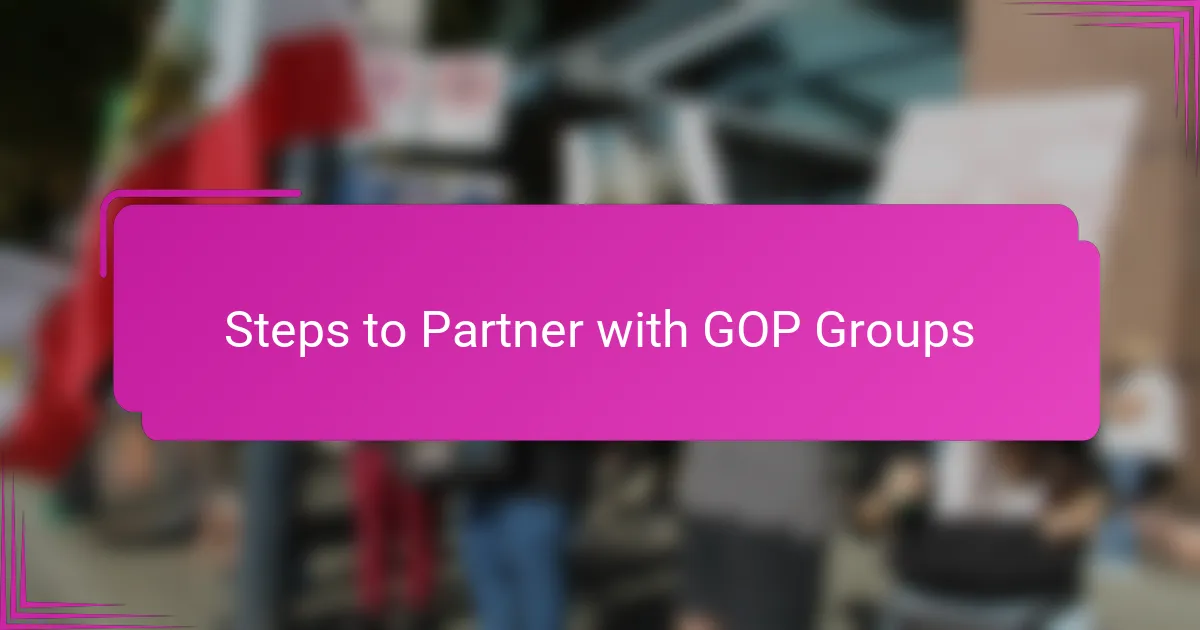
Steps to Partner with GOP Groups
Taking the first step to partner with local GOP groups often means showing up where they meet—whether it’s a community hall, a campaign office, or even a virtual call. From my experience, simply being present and expressing genuine interest goes a long way. Have you ever noticed how people respond when you listen more than you talk? That openness can lay the groundwork for trust.
Next, I found that volunteering in small capacities helps build credibility quickly. Whether it’s helping organize an event or distributing flyers, these actions demonstrate commitment beyond words. When I contributed my time, I saw firsthand how even minor efforts sparked conversations that led to deeper involvement.
Finally, I believe transparency about your goals and respectful collaboration are key. Local GOP groups are protective of their mission but also eager to welcome allies who share their vision. Have you asked questions and listened to their concerns? Doing so helped me align my efforts with theirs, creating a partnership rooted in mutual respect and shared purpose.
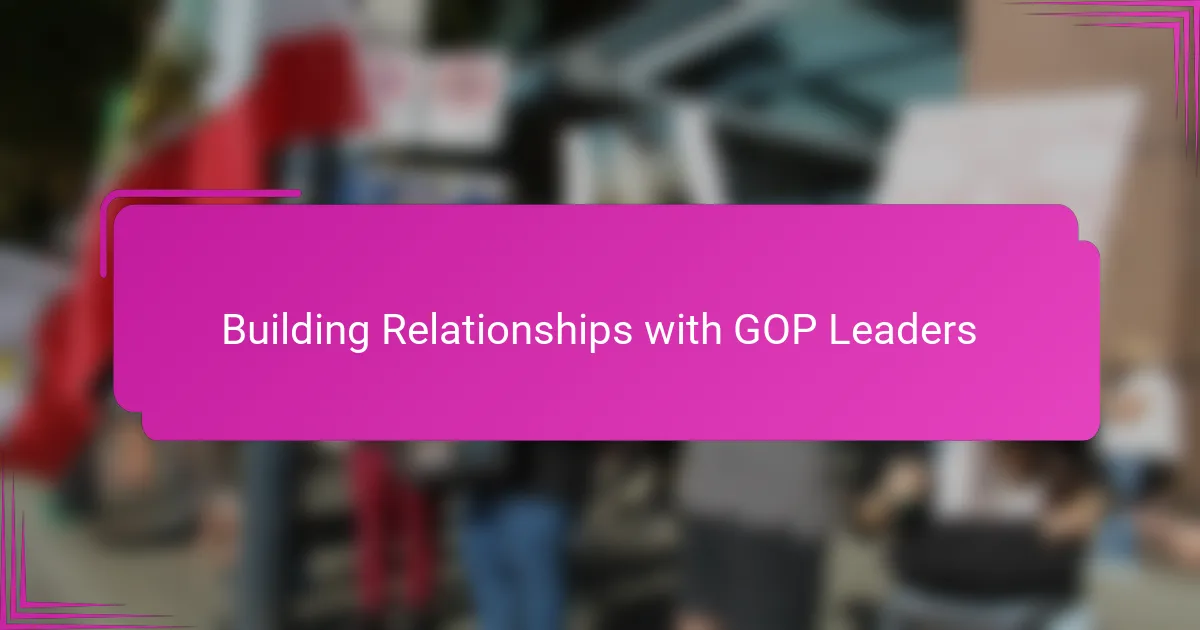
Building Relationships with GOP Leaders
Building authentic relationships with GOP leaders starts with genuine curiosity about their experiences and priorities. I remember sitting across from a local party chair who generously shared stories of past campaigns, and that openness instantly fueled my respect and commitment. Don’t you find that when someone trusts you with their journey, it naturally forms a stronger bond?
Another thing I’ve learned is the importance of consistency. Showing up regularly—not just when you need something—signals that you’re invested in the cause, not just the campaign. Over time, these small but steady efforts nurtured friendships with leaders who became not only political allies but mentors as well.
Trust, I’ve found, is the cornerstone of all these relationships. It’s about listening carefully, following through on promises, and respecting their knowledge of local dynamics. When leaders see that you’re sincere and dependable, collaboration becomes less transactional and more like a shared mission. Have you experienced a moment like that, where trust transformed a professional connection?
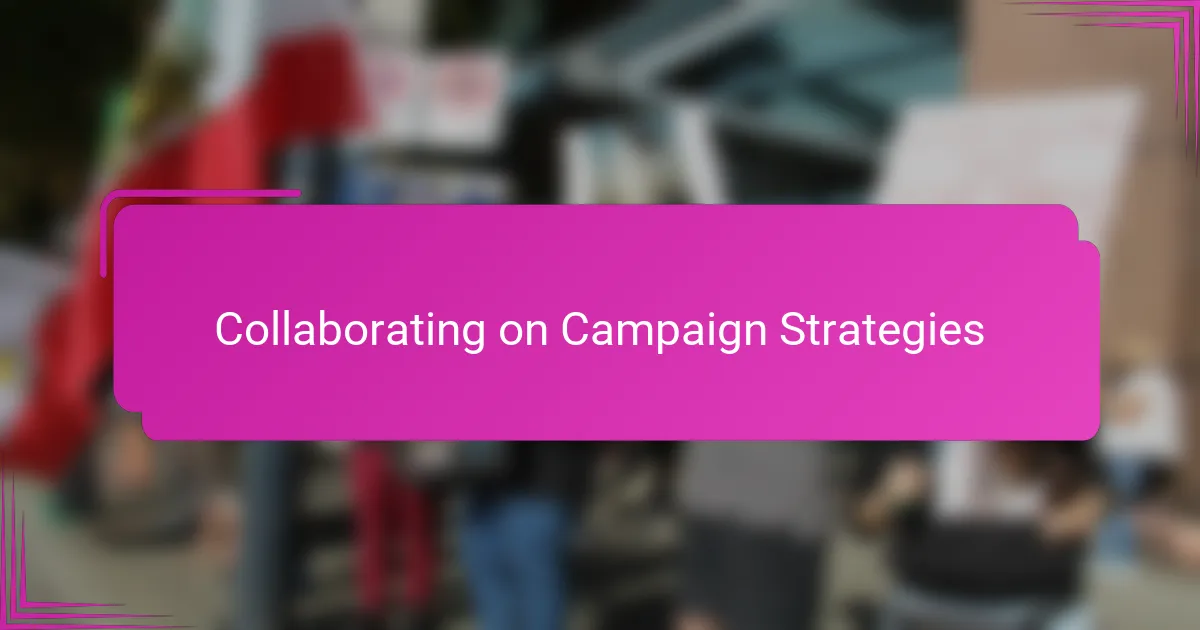
Collaborating on Campaign Strategies
One of the most rewarding parts of collaborating on campaign strategies with local GOP groups has been the process of brainstorming together in those small, focused meetings. I remember a session where we hashed out ideas on voter outreach, blending their on-the-ground experience with my perspective on digital tactics. Doesn’t it feel like when diverse viewpoints come together, the strategy becomes not just better but more dynamic?
I’ve also noticed how flexible these groups are when it comes to adjusting plans based on real-time feedback. For example, during a recent campaign, we tweaked messaging halfway through the season after volunteers reported what resonated best at the doors. That willingness to pivot taught me that collaboration isn’t just about sharing ideas but about listening deeply and responding swiftly.
What often surprises me is how strategy sessions turn into moments of genuine camaraderie, where passion fuels creative solutions. Have you ever been in a room where everyone’s energy lifts the room, focused on a common cause? That shared drive is what makes partnering on these campaigns not just effective but truly inspiring.
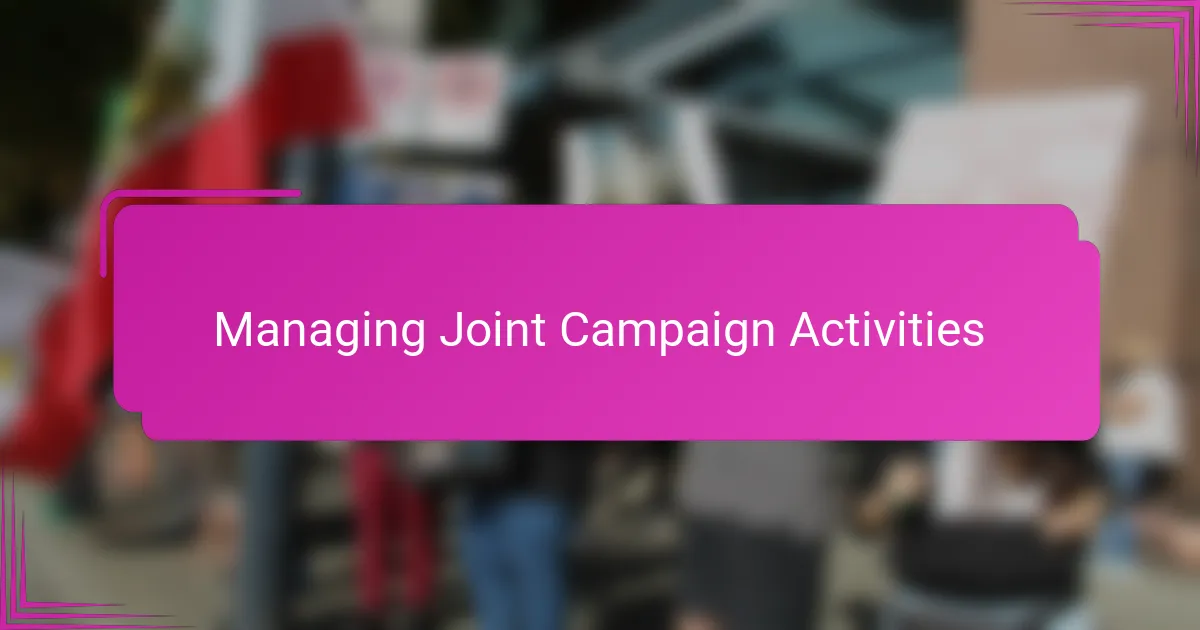
Managing Joint Campaign Activities
Managing joint campaign activities requires clear communication and defined roles. From my experience, setting expectations early prevents confusion and keeps everyone aligned. Have you ever been part of a project where undefined responsibilities led to duplicated efforts? That’s the last thing you want in a fast-paced campaign environment.
I found that regular check-ins are a game-changer. Whether through quick calls or brief meetings, these moments help track progress and adapt plans on the fly. Once, a phone call midweek helped us catch a logistical snag with a rally, turning potential chaos into smooth coordination.
Lastly, I believe celebrating small wins together builds momentum. A shared sense of achievement—like hitting a volunteer signup target—boosts morale and strengthens bonds. Have you noticed how even minor victories can energize a team? In joint campaign work, that energy is priceless.